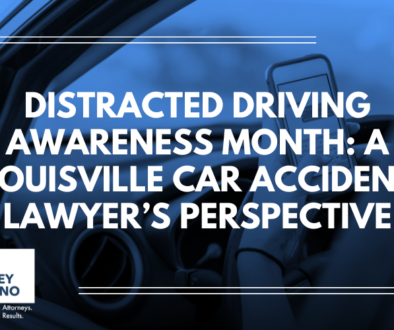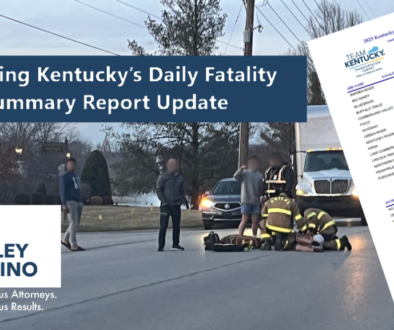The Federal Motor Carrier Safety Administration’s (FMCSA) Role in Truck Accident Cases
In the vast expanse of America’s highways, the Federal Motor Carrier Safety Administration (FMCSA) stands as a sentinel of safety, overseeing the regulation and enforcement of commercial motor vehicle operations. The FMCSA is tasked with promoting safety and reducing crashes involving large trucks and buses. Additionally, it also plays a pivotal role in safeguarding the lives of motorists and pedestrians alike. In this blog, we’ll understand the FMCSA by exploring its functions and regulatory authority. We’ll also learn about its profound significance in truck accident cases.
Understanding the Federal Motor Carrier Safety Administration (FMCSA)
The FMCSA, established in 2000 as a division of the U.S. Department of Transportation (DOT), serves as the primary regulatory agency responsible for overseeing the safety and compliance of commercial motor carriers operating in the United States. Its mission is multifaceted, encompassing the development and enforcement of regulations. Additionally, it focuses on the collection and analysis of safety data and the implementation of programs and initiatives. These programs are aimed at reducing crashes and improving safety outcomes.
Key Functions of the FMCSA
Regulatory Oversight
At the heart of the FMCSA’s mandate is the development and enforcement of regulations governing the operation of commercial motor vehicles. These regulations cover many areas, including;
- driver qualifications
- hours of service
- vehicle maintenance
- cargo securement
- hazardous materials transportation
By establishing clear standards and requirements, the FMCSA aims to ensure the safe and responsible operation of commercial vehicles on the nation’s roadways.
Safety Compliance and Enforcement
In addition to setting regulatory standards, the FMCSA is responsible for ensuring compliance with these standards through various enforcement mechanisms. This includes conducting safety inspections of commercial vehicles and driver records and investigating complaints and reports of safety violations. It also involves taking enforcement actions against carriers and drivers found to be in violation of regulations. Through these efforts, the FMCSA seeks to hold accountable those who jeopardize public safety through negligent or reckless behavior.
Data Collection and Analysis
The FMCSA collects and analyzes a vast array of safety data related to commercial motor vehicle operations. This may include crash reports, inspection records, and driver violations. By aggregating and analyzing this data, the agency can identify trends, patterns, and risk factors associated with truck and bus crashes. This information is invaluable for informing regulatory decisions, targeting enforcement efforts, and developing strategies to improve safety outcomes.
Education and Outreach
In addition to its regulatory and enforcement functions, the FMCSA actively engages in education and outreach efforts. These efforts aim to promote safety awareness and best practices among commercial motor carriers, drivers, and other stakeholders. This includes providing training resources, conducting outreach events, and disseminating safety information through various channels. By empowering stakeholders with knowledge and resources, the FMCSA strives to foster a culture of safety and responsibility.
Significance of the FMCSA in Truck Accident Cases
The FMCSA’s role in truck accident cases cannot be overstated. Its regulations, enforcement actions, and safety initiatives often form the cornerstone of legal proceedings and liability determinations. Several key factors highlight the significance of the FMCSA in these cases:
Regulatory Compliance
In truck accident litigation, compliance with FMCSA regulations is a critical factor in assessing liability. Violations of regulations related to driver qualifications, hours of service, vehicle maintenance, and other safety standards can establish a basis for negligence or recklessness on the part of carriers and drivers. Attorneys representing accident victims often rely on FMCSA regulations to demonstrate breaches of duty of care. They can also establish liability for damages.
Safety Standards and Practices
The FMCSA’s regulations and safety standards set the bar for acceptable practices within the commercial motor carrier industry. Compliance with these standards is not only a legal requirement but also a moral imperative to protect the safety of drivers, passengers, and the general public. In truck accident cases, evidence of adherence to or deviation from FMCSA safety standards can significantly influence the outcome of legal proceedings and the determination of liability.
Enforcement Actions
The FMCSA’s enforcement actions against carriers and drivers found to be in violation of safety regulations can have far-reaching implications in truck accident cases. Evidence of past violations or a history of non-compliance with FMCSA regulations can be used to establish a pattern of negligence or demonstrate a company’s failure to prioritize safety. Attorneys representing accident victims may use this evidence to strengthen their cases and seek maximum compensation for their clients.
Expert Testimony and Analysis
The FMCSA’s expertise in commercial motor vehicle safety and regulatory compliance makes it a valuable resource for expert testimony and analysis in truck accident cases. FMCSA officials, safety inspectors, and analysts can provide valuable insights. They can reveal regulatory requirements, industry practices, and safety trends that help elucidate the circumstances surrounding an accident. Their testimony can bolster the credibility of accident reconstruction efforts, shed light on regulatory violations, and assist in determining liability.
Working With the FMCSA For You
The Federal Motor Carrier Safety Administration (FMCSA) plays a central role in promoting safety and regulating the commercial motor carrier industry in the United States. Through its regulatory oversight, enforcement actions, data analysis, and education efforts, the FMCSA strives to reduce crashes involving large trucks and buses and protect the lives of motorists and pedestrians. In truck accident cases, the FMCSA’s regulations, enforcement actions, and expertise are invaluable resources for attorneys, accident victims, and the legal system as a whole, helping to establish liability, promote accountability, and ensure justice for those affected by truck accidents.
The knowledgeable truck accident lawyers at Stein Whatley Astorino, PLLC, stay current on all regulatory changes affecting commercial trucks and truck accidents. If you were seriously injured or if your loved one was killed in a truck accident, call us at 502.553.4750 to discuss your options. The initial consultation is free.




